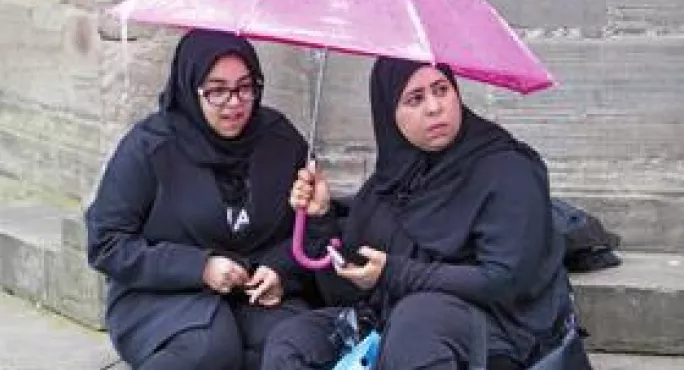The Scottish education system must do more to ensure that growing numbers of immigrants are not left out of worldleading curriculum change, a respected international expert has warned.
In an exclusive interview with TESS, Andy Hargreaves said that multicultural communities in the nation’s increasingly diverse population were not “sufficiently prominent” in official statements shaping the Curriculum for Excellence reforms.
The English-born researcher, author and adviser to the Canadian government last week urged headteachers to recognise the value of understanding and representing different cultures when making educational change.
Speaking to TESS after a leadership workshop in Edinburgh, Professor Hargreaves said: “Curriculum for Excellence is about creating well-rounded learners, and excellence is not just defined by test scores, it involves the arts as well.
“Especially after the last year, with the nation galvanised into debate on national identity by the independence campaign, Scotland is further ahead than other places on understanding its national identity.
“But what Scotland wants to be as a nation educationally has to include immigrants and newcomers as well, and they are not as visible and palpable a presence in the Scottish education system and education documents as they are in England or Canada.”
Professor Hargreaves praised CfE’s “whole child” approach, which he said was helping the education system adapt to changing demographics, but he called on Scotland to follow Canada’s lead. Ethnic diversity in regions such as Ontario was now a “central part of the education system’s identity”, he said.
Although Scotland consistently outperformed the rest of the UK in the Programme for International Student Assessment (Pisa), it did less well on “equity”, Professor Hargreaves added.
Headteachers at the workshop disagreed, however. They defended progress on catering for growing numbers of pupils from a wide range of cultural and language backgrounds.
Norma Prentice, an Edinburgh headteacher seconded from Drummond Community High to Castlebrae Community High, said: “It depends a bit on the locality, but here in the city schools are very inclusive.”
She cited the “amazing attainment statistics” of pupils who spoke English as an additional language (EAL), and highlighted Drummond’s success in educating a student body that collectively spoke more than 20 native languages.
Susan Cochrane, headteacher of Juniper Green Primary in Edinburgh, where almost as many languages are spoken, agreed. “We have had very good CPD and support in EAL to help make the curriculum more accessible,” she said. “One pupil who was non-English speaking at the start of P7 performed a Shakespeare speech at the end of the year in English because he wanted to really challenge himself.”
A spokesman for education directors’ body ADES said evidence confirmed that children from immigrant families “integrated well into schools and had good attainment levels”.
He added that ADES was continuing to work with bodies including Bemis - a national umbrella group representing ethnic minorities in the voluntary sector - to develop strategies for involving ethnic minority parents in schools.
Education Scotland said that work was ongoing to ensure “equitable outcomes for all”.
A Scottish government spokesperson added: “Curriculum for Excellence has been developed and implemented in strong partnership and collaboration with all key stakeholders in Scottish education. There has been extensive communication and engagement with parent groups, including those who specifically represent ethnic minority groups.
“Local authorities and schools have a duty to take account of issues of equality and diversity in delivering education, which would include overcoming any barriers to involvement.”
For more on the role of Scottish schools in helping ethnic minorities, see next week’s News focus




